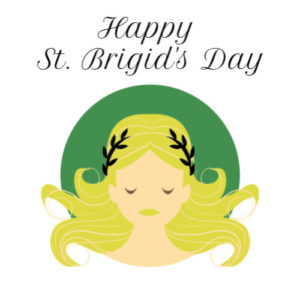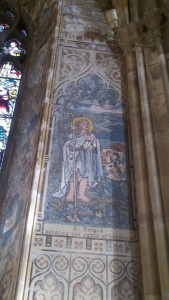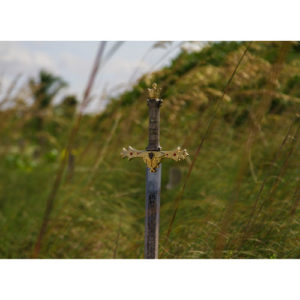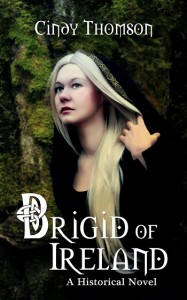 One Legend
One Legend
There are so many stories of St. Brigid that I love (hint: you’ll find many of them retold in my novel, Brigid of Ireland). But I thought I’d talk about just one today, the story of Brigid and her mother. I wonder if this is where Disney got some its ideas. It’s an ancient story of a girl who longs for the mother she never had due to some cruel circumstances.
Born a Slave
Brigid’s mother was her father’s slave. Her father’s wife did not like it that her husband had impregnated his slave, so Brigid’s mother, Brocca, was sold to a druid while she was still expecting. Brigid’s father was cunning, however, and not about to sell two slaves for the price of one. Part of the transaction was the requirement that when born, the baby had to return to him. That is how Brigid came to grow up without a mother.
Not a Model Servant

Brigid is said to have become a Christian because of the teaching of Patrick. Most historians believe the two saints’ lives did not overlap, so it’s probable she was converted by his followers. Brigid had a heart for the poor. In that time, you were either a self-sustained property owner—as her father was, also known as a minor king—a slave, or part of the royal house. Without any of those things, you were a wanderer living in the woods, begging when you could, hunting and foraging for your food. There were plenty of needy people around. Brigid always gave to them. The problem was, what she gave away did not belong to her. Now, it’s said that whatever she gave away was miraculously restored, but despite that, her father grew weary of her generous ways. He decided to put her into the service of the King of Leinster.
Her Father’s Sword

While waiting in the chariot alone as her father went to seek an audience with the king, Brigid encountered another beggar. Being away from her dairy, she looked around the rig to see what she might give. The glint of metal caught her eye. Under a blanket lay her father’s sword. Not an ordinary weapon, this sword had a hilt encrusted with dazzling jewels. No matter. It was the only thing available. While she was handing the sword to the beggar, Brigid’s father and the king emerged from the castle.
“You see? You see why I have to get rid of her?” her father said.
The king nodded. Being wise, as kings tend to be, the king approached Brigid and asked her to explain herself. She waved an arm toward the king’s bountiful fields and hearty cattle, and said, “If I had all this, King, this is what I would give away to those who have nothing to eat and nowhere to lay their heads.”

The king felt humbled by her answer. (Perhaps even chastised.) He declared that this special woman should not be enslaved. Instead, he granted her her freedom. That sounds great, right? But, if you look at what I said about the social structure of ancient Ireland, you’ll realize that life would have been easier for Brigid if she had remained a slave. She does want to find her mother, though. This is where I began my novel, Brigid of Ireland.
Still a Giver
Now having nothing, Brigid continued to give. And as time went on, she continued to be the hands and feet of Jesus. This kind of example inspires me. I hope she inspires you as well.

